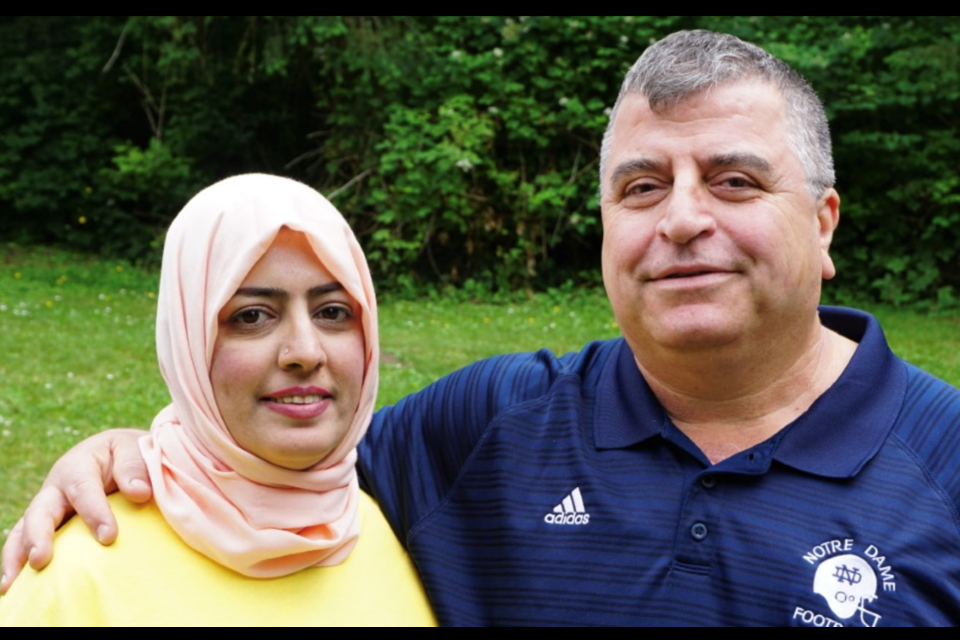How have you been affected by the coronavirus outbreak? We want to hear your questions, stories and concerns. Here's how you can get in touch?
A Coquitlam couple working as janitors are calling for better pay and personal protective equipment as they sanitize schools across the area.
Shaymaa Mohammed, who works as a contract cleaner at the British Columbia Institute of Technology, told The Tri-City News that going to work everyday scares her, but she’s willing to do it so students and teachers can come back to sterile classrooms, bathrooms, offices and cafeterias.
“We’re using new chemicals now. Deep cleaning,” she said. “We try to protect our people’s lives.”
She is one of thousands of workers, the unsung maintainers across the country, who are putting themselves at increased risk for what many would consider low pay.
“We hope they see what we’ve done,” said Mohammed. “We put our lives [on the line] for this job now.”
Between the new chemicals and responsibility of sterilizing a school of a deadly contagion, Mohammed is calling on her employer to bump up her and her colleagues’ pay by $2 dollars. That call has been echoed in a wider campaign to support janitors through the COVID-19 crisis and ensure they get paid appropriately.
“This is not fair,” said her husband Adil Mohammed. “I believe she’s doing more than me but [at $14 or $15 an hour] she’s not getting enough pay.”
Adil works as a janitor at School District 43, where he splits his time between the school board offices and the district’s schools.
Where his wife says she lacks appropriate compensation for her responsibilities, Adil says he’s not provided with adequate personal protective equipment.
“They call us caretakers. They tell us, ‘Our lives are in your hands,’” said Adil.
Since the outbreak began, Adil said his workload has soared as he’s asked to clean keyboards, door handles, — every nook and cranny of the board office and schools.
But while he has been given more to do, Adil said personal protective equipment has been hard to come by.
“For my job, I ask them so many times for a mask. They say they can’t afford it. They say it goes to the hospital,” he said. “We appreciate we still have a job. For me, I’m scared too. It’s also about safety.”
When hand sanitizer was distributed to staff at the school board office, Adil said only the cleaners were left out.
“They tell me I’m very important. Show me,” he said.
In an email, a spokesperson for SD43 said that custodial staff have access to personal protective equipment but that such equipment is “generally not necessary to disinfect and clean as viruses don’t ‘jump’ from surfaces.”
“In such a situation, gloves would suffice,” wrote spokesperson Ken Hoff.
When it looked like the coronavirus was going to become a problem for the district, the senior manger of caretaking ordered a machine that coats all surfaces with an electrostatic spray in a short amount of time.
“A school the size of Mundy Road could be disinfected in about an hour and that would include toys, and other elementary school equipment rather than just desks, tabletops, door handles,” wrote Hoff, quoting an email from the executive director of facilities and planning services.
He added: “The machine adds a whole new level of safety for our students and staff when it comes to cleaning our facilities, especially in a time like this.”
Still Adil said he is concerned, the stress of the outbreak made worse by the fact the couple is separated from many friends and family in Turkey. And just last week, Adil said he lost one of his best friends, a doctor in Istanbul, to the novel coronavirus.
“We try the best we can [but] everybody is scared,” he said. “We’ve never seen this.”
School District 43 has a limited supply of personal protective equipment, mostly stockpiled as part of its natural disaster emergency supply inventory, and is keeping it for use by essential medical and first responders should they need it during the pandemic.
— with files from Diane Strandberg
Read more of our COVID-19 coverage here.



